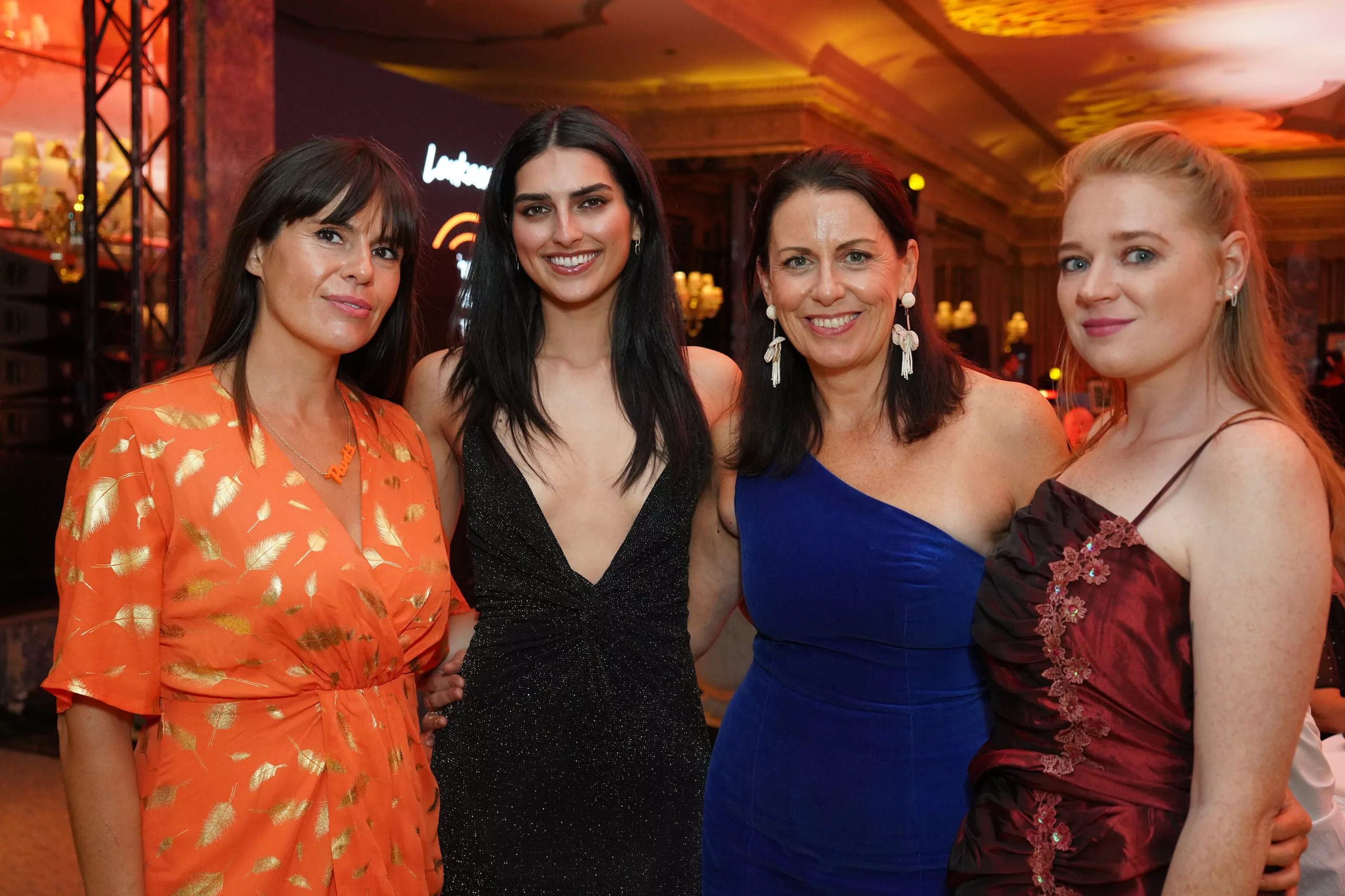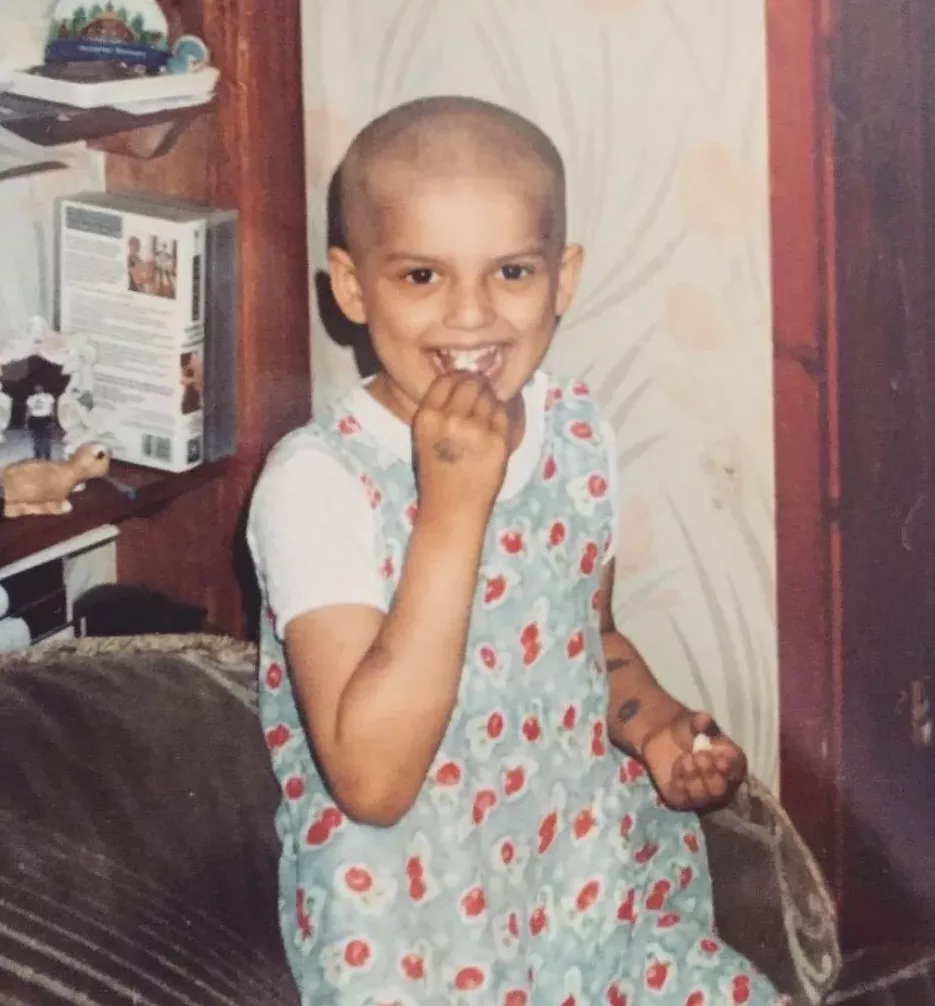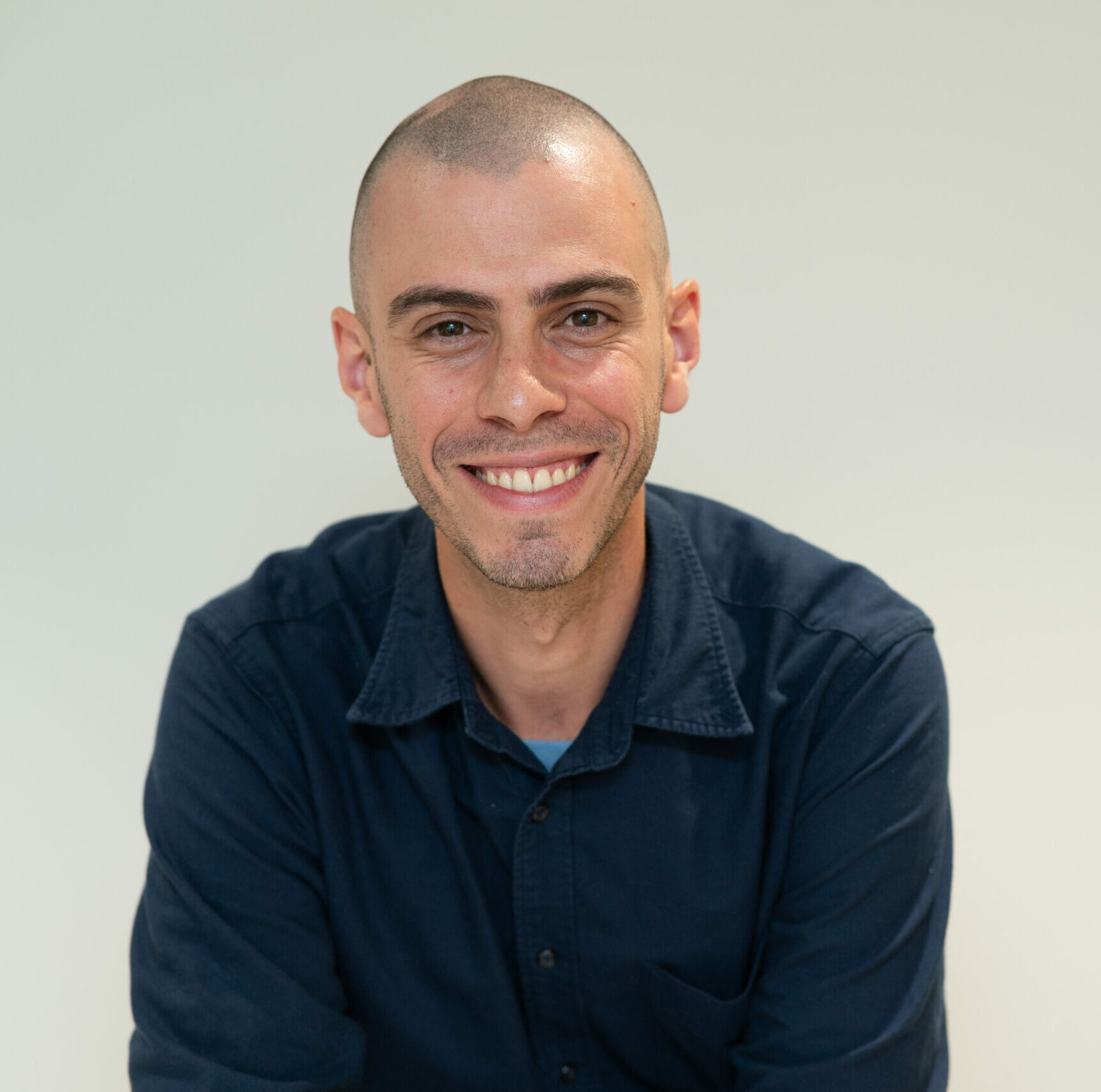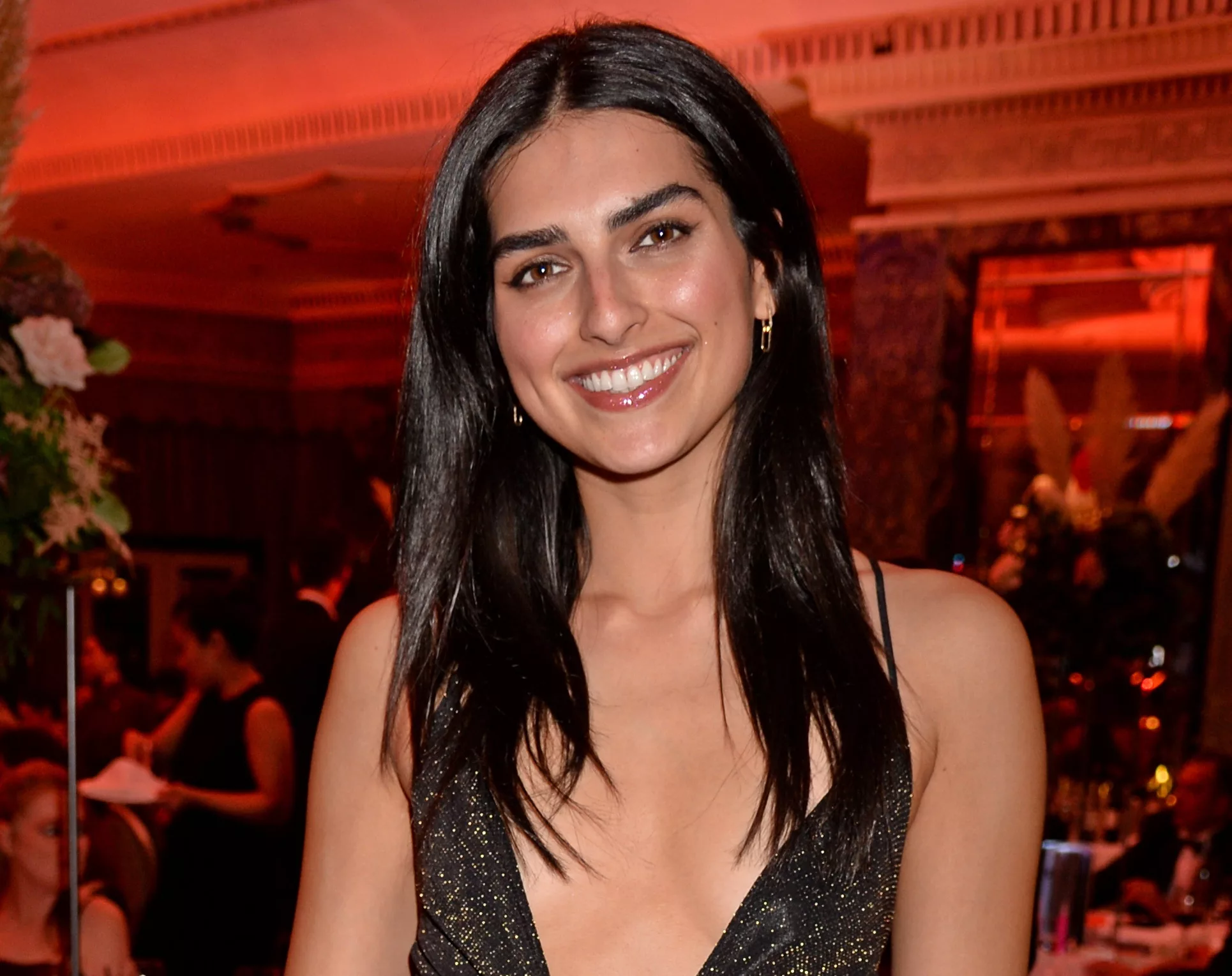15 Feb 2024Awareness raising
Vogue model who survived leukaemia as a child joins Leukaemia UK in calling for more donations for research to stop blood cancer ‘destroying childhoods’
Vogue model Saffron Vadher has joined Leukaemia UK on International Childhood Cancer Day (February 15th) in calling for more research into the blood cancer.
Leukaemia is the most common type of childhood cancer, accounting for around a third of all cancers in under 15s. Nine out of ten children survive, but the treatments, which have remained largely unchanged since the 1960s, are harsh and take a huge physical and emotional toll on both the child and the whole family.

Saffron at Who’s Cooking Dinner 2023. ©Gareth Davies Capture Comms Ltd
Saffron, 26, is a Leukaemia UK Ambassador, working to raise awareness about the blood cancer. She was diagnosed with leukaemia just before her fourth birthday in 2000. Saffron endured five years of chemotherapy which disrupted her schooling and family life and left her with painful memories of losing her hair along with a phobia of needles. Saffron said: “Without research, I would simply not be here today. My years of treatment were so gruelling, and affected my whole family. It’s only through generous donations to Leukaemia UK that we can continue to fund research into treatments that are more effective, and kinder on children.”
Research into leukaemia has brought about a dramatic increase in survival rates in children in the last 50 years. Only 33% of children would live for more than five years after diagnosis between 1971 to 1975 – now 88% survive. *

Saffron as a child
Leukaemia UK is funding research projects which aim to find kinder, more effective treatments for acute lymphoblastic leukaemia (ALL), the most common childhood leukaemia, and other blood cancers that affect children. But the charity is calling for more donations so they can invest in further projects.
Fiona Hazell, Chief Executive of Leukaemia UK, said: “Childhood leukaemia affects the whole family in the most terrible way. The gruelling, lengthy nature of the chemotherapy and other treatments can effectively destroy years of normal childhood and put a massive emotional strain on everyone around them.
“Research has brought about dramatic increases in survival rates over the past 50 years and given precious hope to parents and those youngsters who have been given a devastating leukaemia diagnosis. But chemotherapy is still the main treatment, as it has been since the 1960s. Although breakthroughs are happening all the time, it’s only by investing in more research that we will bring them about. That’s why on International Childhood Cancer Day we’re renewing our call for donations so that we can fund more research into kinder, more effective treatments.”

Dr Victor Llombart. ©Jeff Moore
Leukaemia UK John Goldman Research Fellow Dr Victor Llombart, from University College London is carrying out research which could have a significant impact on the treatment of childhood leukaemia. He’s looking at MYC, one of the key proteins in the development of the ALL subtype known as T-ALL.
Dr Llombart said: “Acute lymphoblastic leukaemia is the most common leukaemia in the paediatric population and about 15% of these correspond to T-ALL. Despite significant advancements in treatment modalities, the prognosis of some of these patients remains poor, particularly in relapsed or refractory cases.”
Uncovering more about how and why MYC becomes faulty could open doors to new treatment options. “About 80 per cent of patients with this type of ALL show a faulty MYC function,” adds Dr Llombart. “And MYC is also a factor in other subtypes of leukaemia and in many solid tumours that develop aggressively, so I hope my research will benefit many leukaemia patients in the long term. Over the past few decades we have seen a big improvement in the cure rate for patients with ALL. What has been crucial is the funding and resources that have been allocated to this research. My hope for the future is that we can accelerate this progress and that leukaemia patients can benefit from treatments that are 100 per cent effective and hopefully have very limited side effects so they can live long, normal lives.”
*Figures from Cancer Research UK
Find out more about Dr Llombart’s research.
Related posts
19 September 2023
“Fundraising never tasted so good!”: Star-studded evening raises over £235,000 for life-saving leukaemia research
Chefs and celebrities mingled at The Dorchester last night for a gastronomic spectacular in aid of Leukaemia UK, raising over £235,000 to support world-class research into the devastating disease. Who’s…
16 November 2023
Leukaemia UK appoints Hannah Peckham as newest Ambassador
Leukaemia UK has today announced its appointment of award-winning children’s book author, Hannah Peckham, as its newest celebrity Ambassador. Hannah joins the likes of actor Dougray Scott, celebrity chef Francesco…
5 December 2022
John Goldman Fellowships for 2023 now open
Leukaemia UK is delighted to announce that we are funding more ground-breaking research in 2023, by continuing our investment in early career scientists and clinicians for our prestigious John Goldman…
8 November 2022
Leukaemia UK announces John Goldman Fellows for 2022
Leukaemia UK has awarded their prestigious John Goldman Fellow research grants to four outstanding early-career researchers seeking to advance our understanding of and ability to treat blood cancer. Leukaemia UK…
